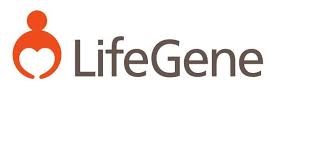
In our Eat2BeNice project we want to know how lifestyle-factors, and nutrition contribute to impulsive, compulsive, and externalizing behaviours. The best way to investigate this is to follow lifestyle and health changes in individuals for a longer period of time. This is called a prospective cohort study, as it allows us to investigate whether lifestyle and nutrition events at one point in time are associated with health effects at a later point.
Luckily we can make use of the LifeGene project for this. LifeGene is a unique project that aims to advance the knowledge about how genes, environments and lifestyle-factors affect our health. Starting from September 2009, individuals aged 18 to 45 years, were randomly sampled from the Swedish general population. Participants were invited to include their families (partner and children). All study participants will be prompted annually to respond to an update web-based questionnaire on changes in household composition, symptoms, injures and pregnancy.
The LifeGene project (1) consists of two parts: First, a comprehensive web-based questionnaire to collect information about physical, mental and social well-being of the study participants. Nine themes are provided for adults: Lifestyle (including detailed dietary intake and nutrition information), Self-care, Woman’s health, Living habits, Healthy history, Asthma and allergy, Injuries, Mental health and Sociodemographic. The partners and children receive questions about two to four of these themes. For children below the age of 15 the parents are requested to answer the questions for them.
The second part is a health test: at the test centres, the study participants are examined for weight, height, waist, hip and chest circumference, heart rate and blood pressure, along with hearing. Blood and urine samples are also taken at the test centres for analysis and bio-banking.
Up until 2019, LifeGene contains information from a total of 52,107 participants. Blood, serum and urine from more than 29,500 participants are stored in Karolinska Institute (KI) biobank. From these we can analyse genetic data and biomarkers for diabetes, heart disease, kidney disease and other somatic diseases. Based on LifeGene, we aim to identify nutritional and lifestyle components that have the most harmful or protective effects on impulsive, compulsive, and externalizing behaviors across the lifespan, and further examine whether nutritional factors are important mediators to link impulsivity, compulsivity and metabolic diseases(e.g. obesity, diabetes). Wewill update you on our results in the near future.
For more information, please go to the LifeGene homepage www.lifegene.se. LifeGene is an open-access resource for many national and international researchers, and a platform for a myriad of biomedical research projects. Several research projects are underway at LifeGene https://lifegene.se/for-scientists/ongoing-research/.
This was co-authored by Henrik Larsson, professor in the School of Medical Science, Örebro University and Department of Medical Epidemiology and Biostatistics, Karolinska Institute, Sweden
Reference
1. Almqvist C, Adami HO, Franks PW, Groop L, Ingelsson E, Kere J, et al. LifeGene–a large prospective population-based study of global relevance Eur J Epidemiol. 2011;26(1):67-77.

